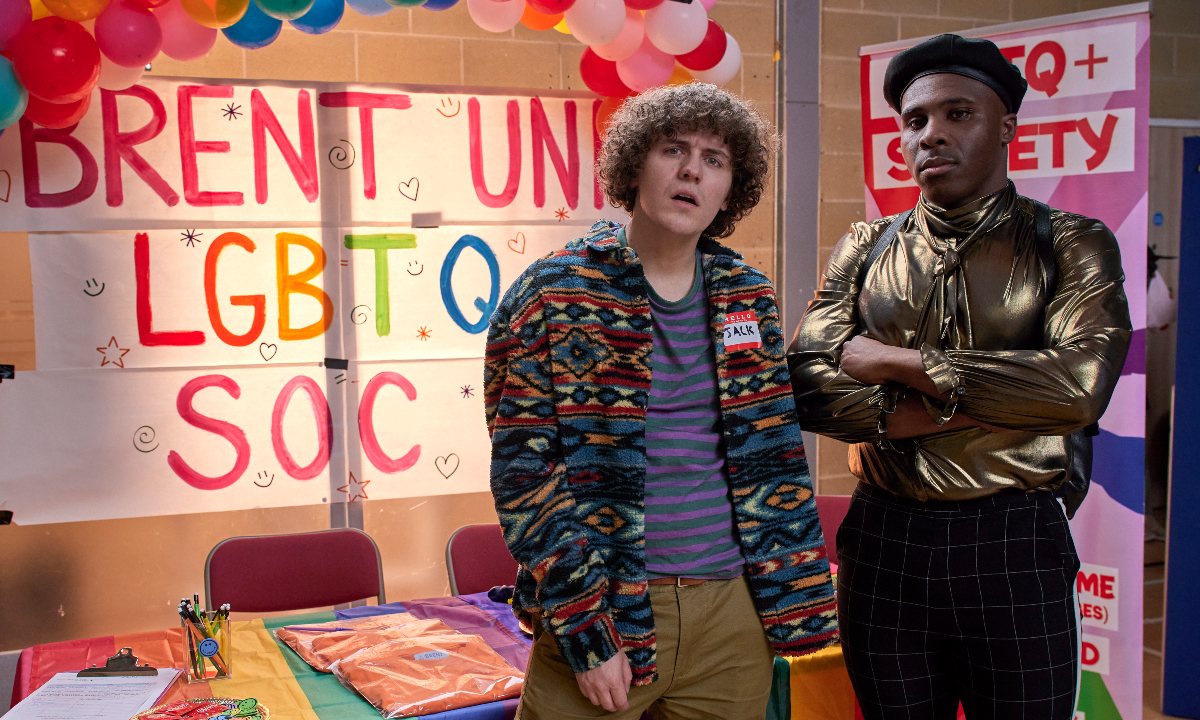
Looking for some television to catch up on? Sarah Kennedy rounds up the best TV shows you might have missed from May 2022.
Love, Death and Robots (Netflix)
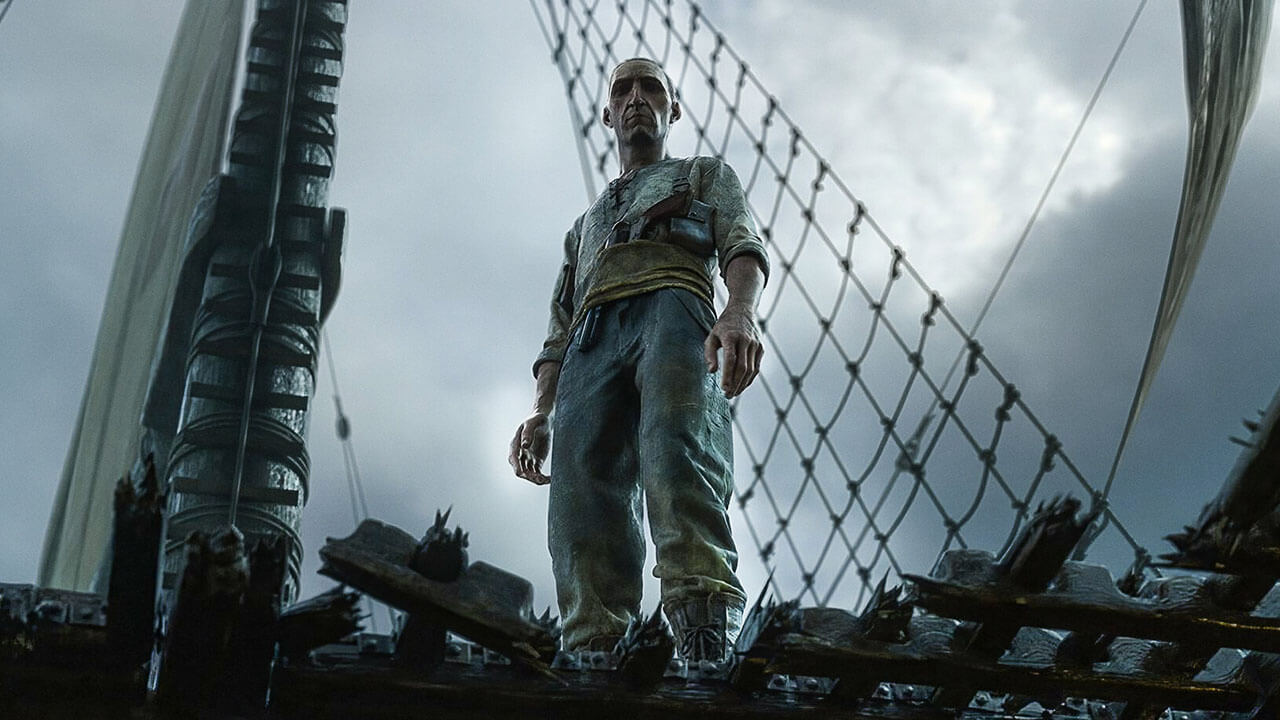
A third outing for this much-loved series created by Tim Miller and David Fincher. Anthology series lend themselves so well to the sci-fi horror genre, with so many varied and electrifying ideas covered at breakneck speed in wildly different styles.
My honourable mentions are Bad Travelling, a disturbing tale of pirates struggling with giant crabs and ethical conundrums on the high seas, Night of the Mini Dead, an adorable stop-motion zombie apocalypse reminiscent of Robot Chicken, and the return of the titular robots in Exit Strategies. Think WALL-E but much more depressing as they survey a post-apocalyptic Earth with bewilderment and deadpan humour. There’s very little sympathy and zero redemption for humanity.
The hands-down best and most astounding episode is Jibaro, a horrifying fairy tale, written and directed by Alberto Mielgo. It plays with the classic siren story and themes of lust and greed. We meet a handsome nameless knight, having the worst day of his life. I like to think he’s called Dave because he’s the last man standing after this Lady of the Lake’s siren song wipes out an army, and, as Hollie explains in Red Dwarf “Everybody’s dead Dave”. The knight’s deafness confers on him unique protection from the siren’s rave to the grave in the centre of her magical lake. This terrible bewitching woman is covered in jewels and golden scales igniting his greed, and a frenetic sensual mating ritual. When the knight attacks her and steals her skin, nature fights back, Carrie-style. This isn’t just a random spot she’s built her candy cane cottage in; she’s an integral part of this wild ecosystem. This is her land and invaders must die.
The hyper-real animation style is arresting, every part of the action is an irresistible hypnotic dance and not a single word is spoken. Jibaro is the most inventive short you’ll see all year, without doubt.
Big Boys (Channel 4)

This is Jack Rooke’s memoirs of his time at university in the wake of the death of his father. His adult self narrates, admitting that on-screen Jack (Dylan Llewellyn from Derry Girls) is the better looking of the two. We begin with him and his Mum (Camille Coduri, playing the same character as Rose Tyler’s Mum from Doctor Who) dealing with endless lasagnes, gifted by neighbours scuttling away so they don’t have to talk to the grieving family. In the first five minutes we cover overeating, depression, panic attacks and a thousand pop culture references, born of his and Mum’s mutual love of daytime TV. He delays a year but makes it to university, the first in his family to do so. “You fucking geek” says his mum affectionately.
Danny who “looks like a contestant on Take Me Out” is Jack’s neighbour in overspill accommodation next to the dorms, which is a glorified shed. He confidently takes Jack under his wing. Jack is timid and filled with anxiety about meeting people. Danny, at least in the first few episodes, is the polar opposite. Together they are christened Dick and Dom in the Bungalow by Katy Wix’s ridiculous camp counsellor character Jules, who enjoys hanging out in the Student Union toilets watching for drug use, making her accusations extra-dramatic with a giant foam finger. The only drug use she spots is Danny taking his antidepressants.
Jack comes out as gay in a very public way after pulling the emergency cord in the disabled toilet, so everyone sees him being rescued when his hair gets caught on Yemi’s nose piercing, while “giving him a hug”. His sexuality is no big deal, but you sense he’ll be mocked by his friends forever. For the real Jack’s sake, I hope that event isn’t drawn directly from life!
Big Boys wears tragedy and complex grief very lightly, like Jack’s ugly fleece. It’s relatable, and affectionate, but, essentially for a comedy, very rude and very funny. It’s emotional but not overwrought; Heartbreaker for the older, more cynical generation. It’s bright and fast, and a cheerful way to spend half an hour with big laugh-out-loud moments.
Floodlight (BBC iPlayer)
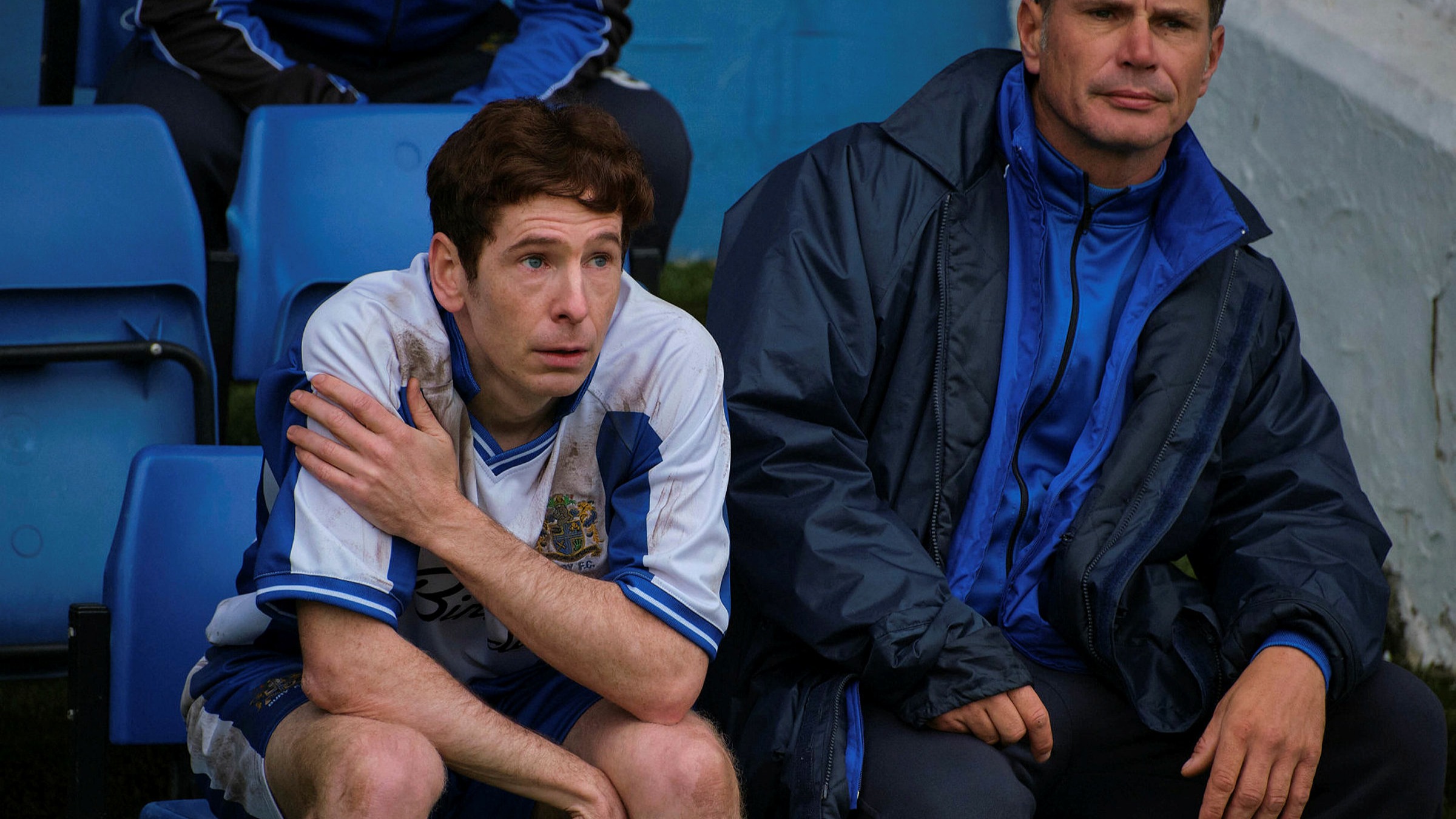
Floodlight is a one-off BBC drama, the kind of which they do so well., illuminating the darkness and shame surrounding child abuse, shame that affords the perpetrators anonymity they don’t deserve. This is the real-life story of Andrew ‘Woody’ Woodward (an incredible performance from Gerard Kearns, most recognisable from Shameless), a professional footballer who started out at Crewe Alexandra Juniors in the 1980s, one of many boys groomed and abused by Barry Bennell over his long coaching career (Jonas Armstrong, menacing and mesmerising).
The moments of forced physical intimacy are hard to watch, but the emotional manipulation is shocking. The devastating way that Bennell forced himself into the boy’s family lives by promising success and riches (£2,000 a week is life changing money, even now) from an unquestioned position of trust. The boys he coached lived to impress him, to be “one of his boys”, to be his favourite. The message is clear and consistent; do exactly what you’re told or you get side-lined and don’t play. Beg for your place on the team and all that that involves.
These boys grew up thinking they owed their career to Bennell, the ‘star maker’. It’s particularly horrific to watch Andrew as an adult jump through hoops to try and justify the abuse he’s repressed for a lifetime. During the police investigation he says heartbreakingly “real men don’t get raped”. You don’t think this story can twist the knife any further and then it does.
This story asks so many questions about what we’d now consider basic safeguarding. Bennell coached solo, with no other adults on the pitch or in the changing rooms. Weekends away in hotels or at his house were fine. Most disturbingly of all, these ‘overnights’ were so normalised he claimed expenses for them from the football club.
It’s moodily shot, with a lot of shadow and darkness, and moments of bright light. It takes Woody a miserable, lonely lifetime to realise “letting everyone know is how you survive this”. In 2016 he realises he must go public. In attaching his name to his story, the weight of his career means this accusation can’t be brushed under the carpet. It’s a gruelling watch, but the final moments are so uplifting as Woody claims the right to his own story. In doing so he’s helped so many other victims, helped enact new child protection legislation and Barry Burnell is serving 34 years in prison for his crimes.
Lucy Worsley Investigates: The Witch Hunts (BBC iPlayer)
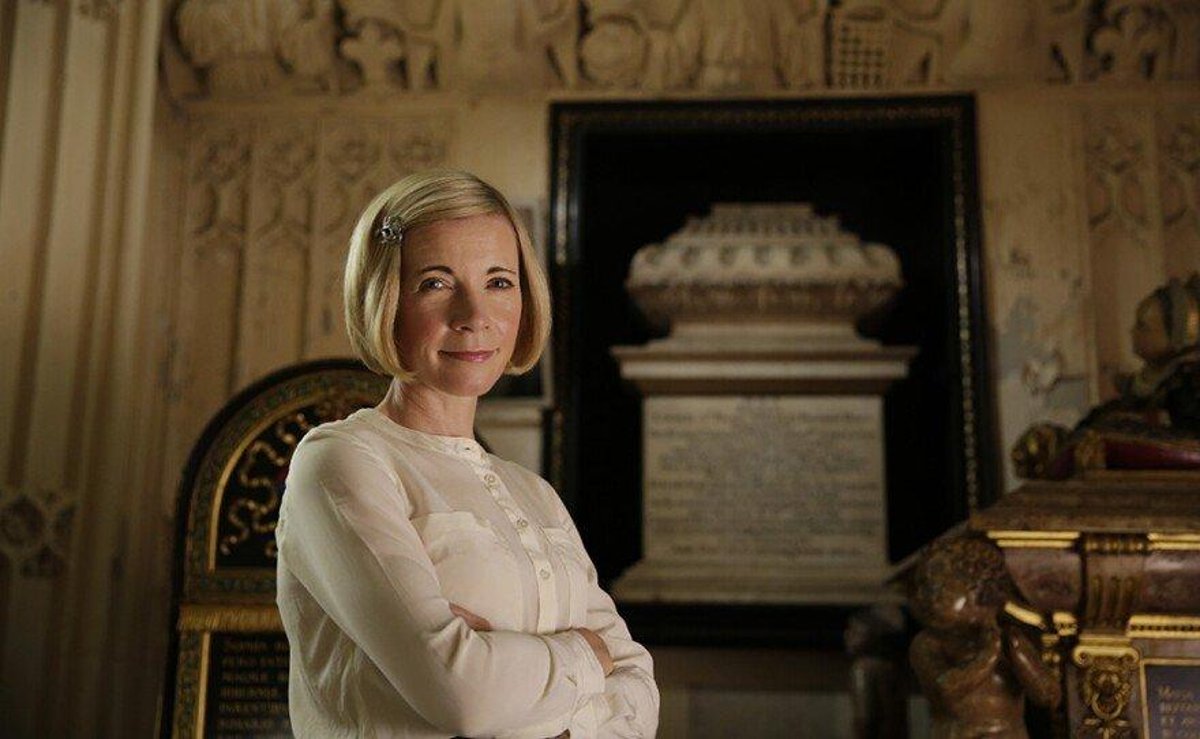
Lucy Worsley, historian and Chief Curator at Historic Royal Palaces, might be a little bit Marmite, but you can’t deny she tells the best stories. In this four-part series she’s looking at stories that form part of our national mythology, putting assumptions under the microscope with scientific advancements and a modern perspective on contemporary sources.
We begin the story on a dark and stormy Halloween night in 1590. Apparently, a witch’s coven was called in a North Berwick graveyard to shipwreck and kill James VI of Scotland. This one event triggered a century of moral panic and state murder. The victims were pawns in the religious upheaval between Protestants and Catholics, between Christianity and ancient folk superstitions. James VI was desperate to prove he was a strong and godly monarch by unleashing a war on devilry. After he became James I of England he exported his beliefs around the UK and to the New World now, thanks to the North Berwick trial, he had his blueprint on how to deal with difficult women and bring religious nonconformists into line.
The victims here are front and centre. Agnes, targeted because she was a midwife and respected folk healer, was the first woman to be killed. It’s extremely affecting to hear the words that the victims spoke in their trail so many years later. The Scottish Witchcraft Act made witchcraft a capital offence but, crucially, didn’t actually define witchcraft. A charge open to interpretation like that was designed to be abused by powerful men. There’s detailed records of terrible interrogation and torture, injustice done to so many women, and by extension the communities they served.
Lucy Worsley gives posh girl’s school prefect vibes. But don’t judge a book by its tidy little cover; she’s fascinated by criminality and the most ghoulish stories. Her face lights up, twinkling with infectious enthusiasm. She brings these ancient stories to life.
Secrets of the London Underground (Yesterday)
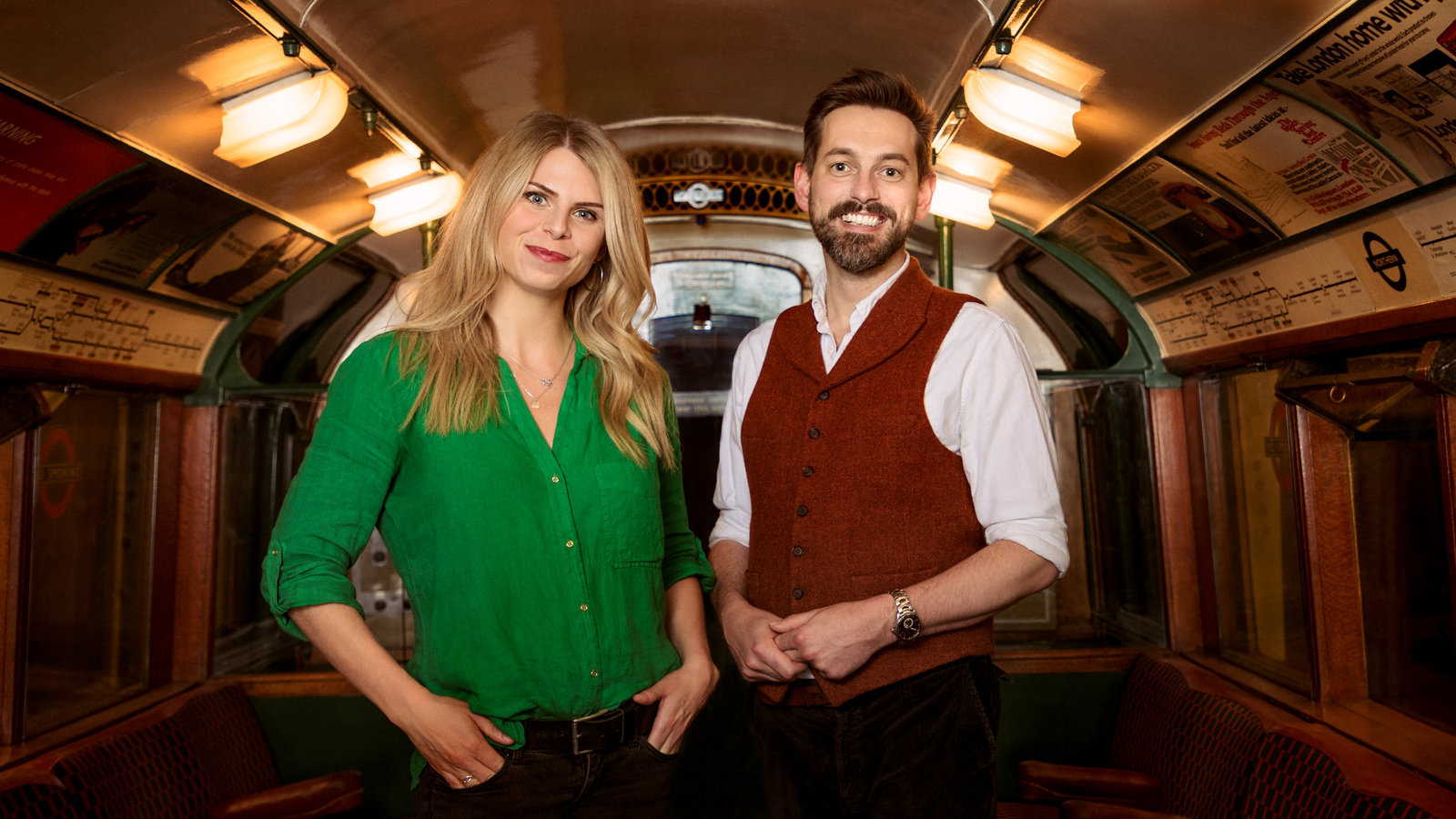
Tim Dunn and Siddy Holloway are back for a second series of this amiable documentary, on a topic that could be dull for those of us living outside the M25 if it wasn’t for their charming enthusiasm that lights up the screen. By choosing the right secret door beneath the capital they unlock thousands of stories about history, architecture, design, advertising, city planning, as well as all the current massive building projects.
There’s opportunity to admire handsome Victorian engineering, learn about beautiful, rare tiles, building facades and old wayfinding signs in the company of people who really know what they’re talking about. And shots of great big diggers for the toddler in all of us. There’s plenty of the expected (chat about air raid shelters and World War II) but the unexpected too, with strange calcium stalactites hanging down from certain tunnels ceilings like string. We also meet museum curators who are currently collecting items from the pandemic, Pride, and the new Elizabeth Line. Unlike the Central Line, history doesn’t stand still.
Unusually for TV the presenting duo are a male academic and a female professional. Siddy was an actress and now a historian at the London Transport Museum. Tim is perhaps a decade away from full corduroy elbow patches, and pleasingly partial to a Doctor Who scarf. He’s lucky to have made a career out of a schoolboy hobby. They are both massive train nerds, but they wear it lightly and pitch it perfectly to a general audience.
Somebody Feed Phil (Netflix)
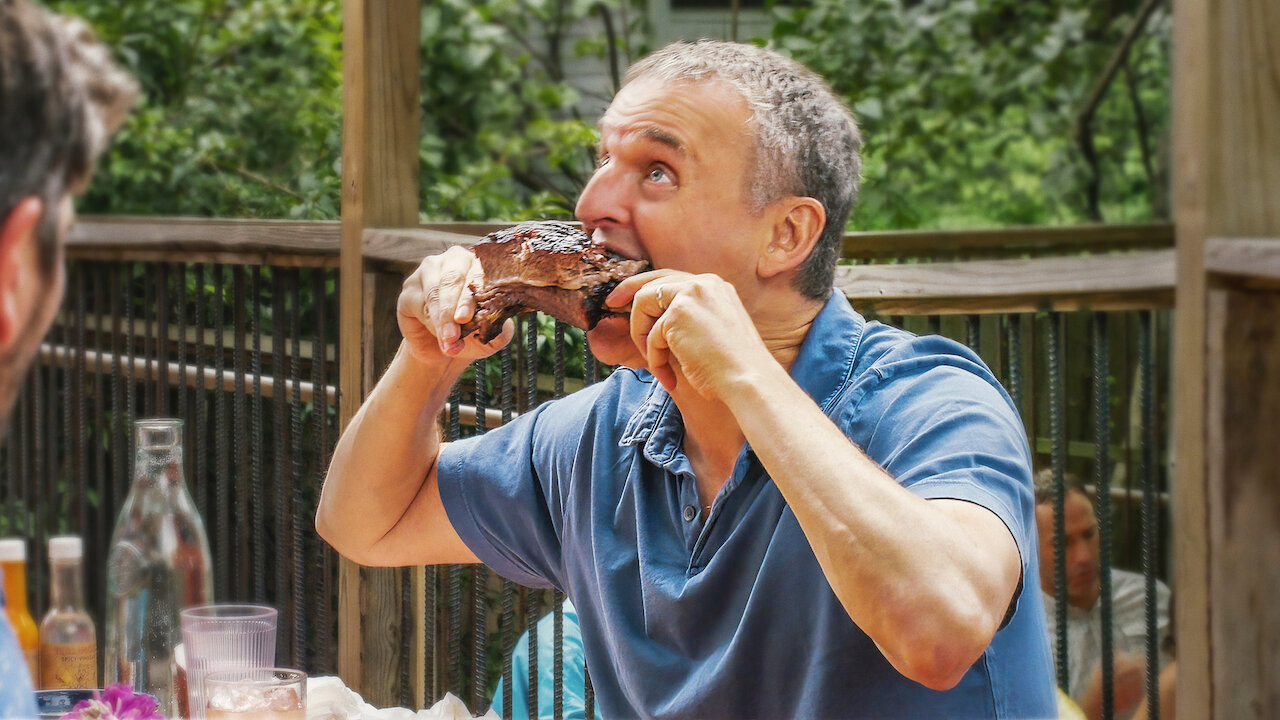
Phil Rosenthal is not a celebrity chef, a travel writer, or a food critic. He’s not trying to pull focus from the cooks, the locals, and the producers he meets around the world. He’s not trying to convince us he’s an expert, like so many insufferable presenters do. He’s just a guy in love with food and travel, with a talent for clowning around in front of the camera. Thanks to a lifetime spent writing successful sitcoms he has the time and money to make his passion a job, but he’s very aware of his privilege. He really is one lucky son of a gun. He puts his ego aside, lets the chefs and the locals speak, but really the food does the talking.
I’m sorry Phil, but that Big Mouth quote is spot on. “Every bite with this guy, it’s like he’s only been on earth for two minutes. He looks like a toddler getting a colonoscopy!” Aged 62 Phil still has heaps of big kid energy, and it’s infectious. With quotes such as “One of the most damn delicious things I ever put in my stupid face” he is not the kind of person who takes himself too seriously.
It’s a food show that really makes you want to go. The Oaxaca episode is hard work for me. The mole and mezcal, the markets, the family homes, the high-end restaurants. It’s irresistible. I’m desperate to go, right now. And that’s what he’s all about. Phil provides the encouragement to experience something new on whatever your budget can afford.
I can’t say enough good things about this show. It’s eating with your hands and licking the plate in satisfaction. It’s suffused with pure joy and genuine admiration for talented food producers. It’s a cup of excellent hot chocolate and a warm hug.
Wrong Side of the Tracks (Netflix)
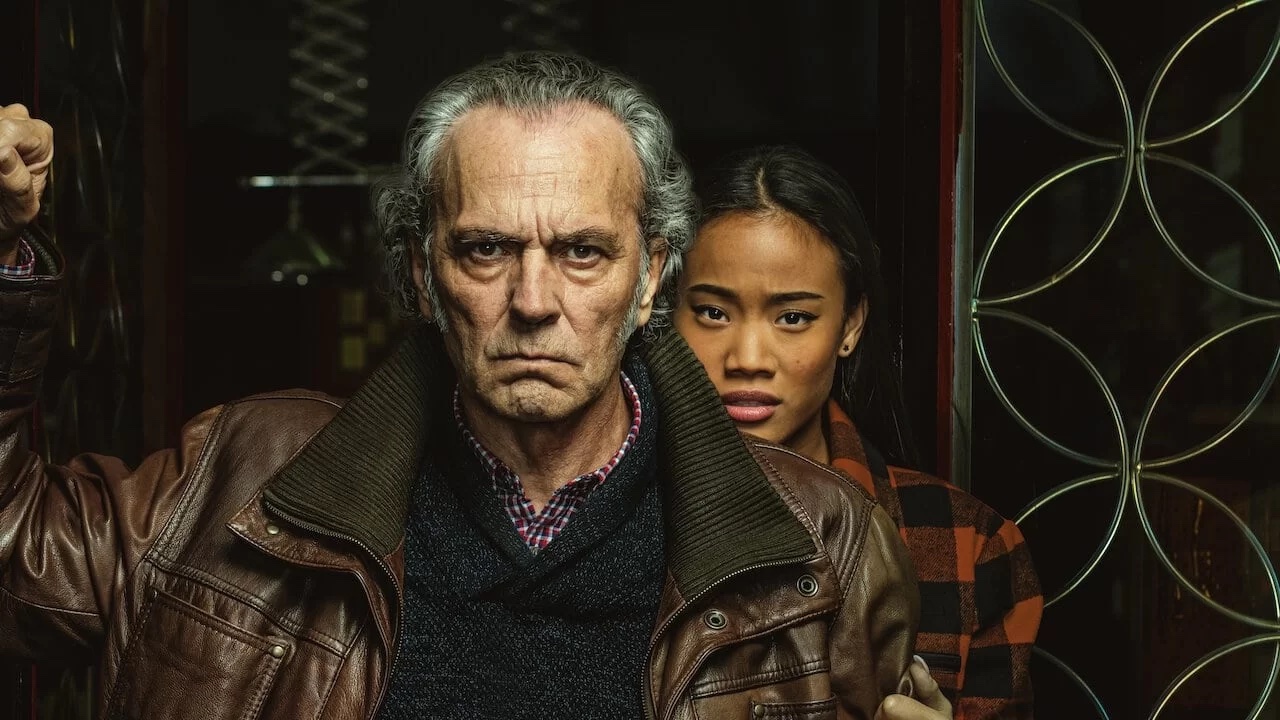
It’s been a while since I could recommend an international drama to you, but I really like the look of Wrong Side of the Tracks, a gritty Spanish language drama set in a deprived area of Madrid. Tirso Abantos (Jose Coronado) has Clint Eastwood vibes with a determined square jaw. He’s an ex-military man, with some very old-fashioned views, and that’s putting it kindly. Sick of the drugs and deprivation turning his neighbourhood to trash he turns to violence as his immediate answer to the local hoodlums, but there’s so little he can do about his disappointing adult children who are poor parents to their young families in turn.
The story here revolves around his very beautiful, adopted granddaughter Irene (Nona Sobo), a dropout in love with her gangster boyfriend Nelson. He’s set to straighten out spoiled Irene with his own brand of tough love, stepping up where her parents have failed.
The yin to his yang is Ezequiel, a dirty cop heavily involved in drugs. Tirso and Ezequiel are both relics of a different time, both thinking they maintain order and care for their neighbourhood, in their own way.
The location lends itself to cinematic yellow light. The last scene of episode one set on the graffiti overpass is beautifully shot, with the viewer able to see so much more of what’s happening than the participants. There’s so much story and character creation in the first 30 minutes it feels like they’ll run out. It dips into telenovela melodrama occasionally with some furious arguments, pitiful weeping, hair tossing and one almighty slap in the face. The stakes are raised at the end of the first episode with Irene naively promising to pay back her debt to the gangsters to save Nelson’s life. How can her grandfather rescue her now? I’m excited to find out.



